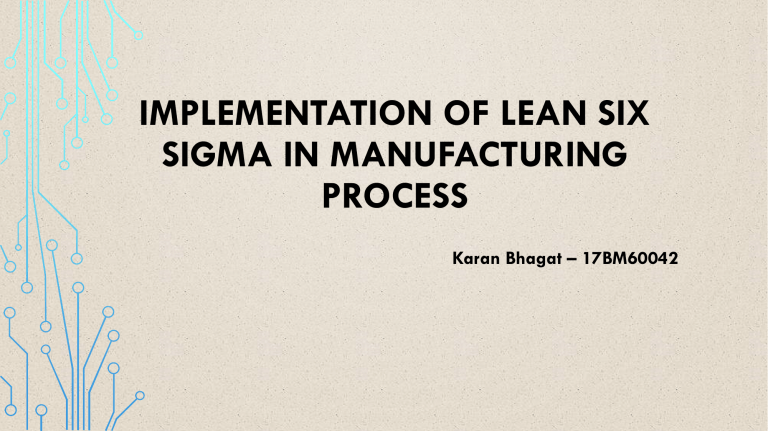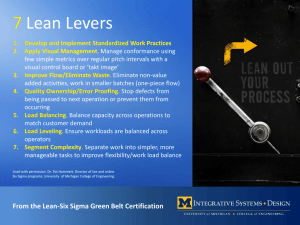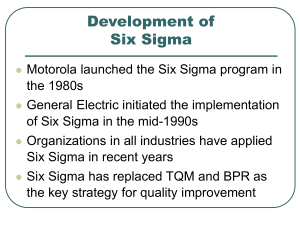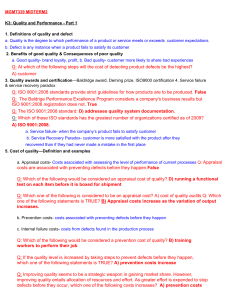
IMPLEMENTATION OF LEAN SIX SIGMA IN MANUFACTURING PROCESS Karan Bhagat – 17BM60042 INTRODUCTION • This six sigma project aims to improve the manufacturing of a semiconductor company which was focused on manufacturing circuit cartridge for inkjet printers • One of the major issues was that the circuits were tested in the final stage for any defects in order to approve or reject them • The six sigma methodology is focused on continuous improvement which minimizes defects and variation towards an achievement of 3.4 defects per million opportunities • Once a project or goal is defined, the organization follows the disciplined six sigma process that’s defined by five phases: 1. Define – in this step the problem statement is defined and all the parameters are listed 2. Measure - measure existing systems to learn what can be considered a baseline or benchmark, among other things. 3. Analyse - identify ways to eliminate defects. This can be done in a variety of ways, including statistical analysis to determine the root cause of an issue. 4. Improve - seek optimal solutions, then develop and test the plan of action for improving a process or goal. 5. Control - The Control step can be ongoing—an organization may modify operating instructions, policies, or procedures to help prevent future defects. CONCLUSION • The implementation of this project has been considered as successful because the critical factor for the process were found and controlled • The base line of the project was 3.35 sigma level and the gain 0.37 sigma that represents the elimination of 1.88% of nonconforming units or 18,788 ppm’s • Also, the maintenance preventive program was modified to achieve the goal stated at the beginning of the project. • It is important to mention that the organization management was very supportive and encouraging with the project team. • Finally, six sigma implementation can be helpful in reducing the nonconforming units or improving the organization quality and personal development.





